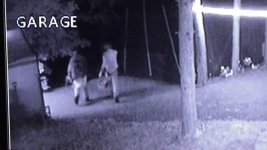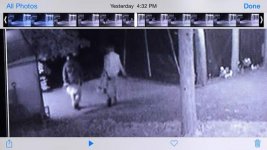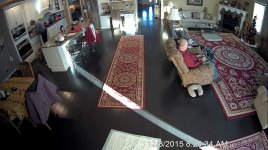All this tech talk sounds like it answers my question, but it's all Greek to me. Fortunately my future son-in-law is a techno geek and can help me with this type of project.
My concern is leaving the dogs in the trailer while I'm gone during the day this summer and if the power / AC fails it would be like leaving them in a hot car.
Other than fixing a camera on a large wall thermometer, is there a way to monitor the temperature and receive an alert at a set point? Am I watching too many TV commercials for monitored alarm systems... Has anyone had a vendor install a monitored alarm in their RV at a fixed site?
ADDED LINK: THIS IS IT... I don't need to see the dogs, just make sure they don't have heat stroke!!!
http://www.amazon.com/Crosse-Alerts...30&sr=8-1&keywords=remote+temperature+monitor
La Crosse Alerts 926-25101-GP Wireless Monitor System Set with Dry Probe
Monitor temperature and humidity remotely for 24 hours a day, 7 days a week Use your smartphone, tablet, or computer to remotely monitor temperature and humidity levels that affect your home, business, or vacation rentals. Prevent freezer burn, food spoilage, and mold. Monitor indoor temperature & humidity with the sensor in your refrigerator, freezer, or food storage with the 6ft detachable dry probe. Add multiple sensors for other areas. Receive text, email and/or app notifications, when MIN/MAX levels are exceeded, when connection is lost, or if the batteries are weak. La Crosse Alerts Mobile - your home's homepage!




